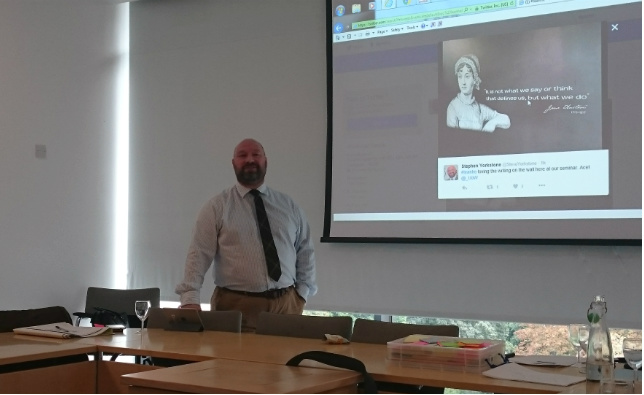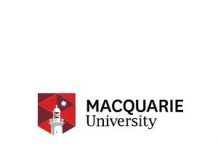Do you develop a cold sweat whenever you hear the term “lean”? Our series of blogposts about lean methodology aims to change all, that starting with an introduction to the philosophy of lean by Edinburgh Napier’s Steve Yorkstone.
You’ve maybe come across lean by name in your university… Or it could have been mentioned in the context of something else, usually some kind of improvement activity.
Lean is a term used to describe an applied philosophy to improve work. It is an approach to managing and organising work based on the application of continuous improvement that puts people at its core
There are a bunch of tools associated with lean: five principles, which will be explored in next week’s blogpost, and quite often you’ll hear lean people talk about removing “waste” – by which they mean a broad definition of waste, including all unnecessary activities – from a process… But lean is about much more than that.
When it is successful lean is about adopting a certain style of coaching management and approach to the daily work, and even strategic planning. After all, good organisational leadership and management is what needs to be done to really ensure the work works well.
Lots of universities have people variously applying lean, but, only a few talk about lean explicitly. “Lean” is frequently bemoaned as a spectacularly unhelpful name for an approach to business improvement. It can also be confused with other approaches, as I will explore in a separate post, but, it is what it is.
Improvement
As the term lean has been used in industries around the world for nigh on 30 years the word has some currency. In higher education, more and more you might see lean being used as a term that professionals doing improvement activity use to refer to work they might be doing. Let’s address what it might mean for you if you hear a colleague talking about lean in your university.
In most of the applications of lean-type activity in UK HE higher education focus is on improvement of the “secondary business processes”, i.e. not teaching or research. Some suggest that this is to the detriment of lean in the sector. What’s the point of a slick fee payment process it could be argued, if the teaching is poor? Although on the other hand, what difference does good teaching make if then students aren’t able to find the classroom? I’d suggest that this debate is, at least in part, a distraction. After all, however much we might not feel like it, our administrative and academic process are entwined, and improving one surely benefits the other.
Often lean practice in HE is about lightening the load, reducing the paperwork that academics are required to do to. There are some notable exceptions where academics are using lean in name in “primary business processes” to improve their practice. Yet more academics are pointing out that they were already doing a lot of this stuff anyway, as continuous improvement has long been at the core of research and pedagogic development.
For front line staff lean can often be seen as a threat. Questions like; “What if my job is deemed non value adding?” “Will lean lead to outsourcing?” often arise.
The short answer is that, when lean is successful, people are able to use released time for more good work. That’s the principle behind the removal of waste from a process, that in lean we reassign the effort to more value adding activity. If we think of game theory, lean properly understood is therefore a non zero sum game.
Trust
The harder answer is that, fundamentally, without a relationship of trust, lean, or any other improvement methodology for that matter, is bound for failure. When we do see lean being linked to cost reduction, or as remedial activity, these interventions are less likely to succeed. When lean is about enhancement, and enabling people to make their good ideas happen, that’s the ticket for success. It is a secondary effect that the best way of working is often the most cost effective.
It is the middle managers who often feel like they have the most to worry about. I remember one manager I worked with at the university who started a briefing for staff at a workshop by suggesting this lean business was “lunacy!” Well, this is understandable. Lean does invite people to think differently about their work in a way that can feel threatening to the established order. One of the fathers of lean suggested that “10% improvement is really hard work, 50% improvement is child’s play”.
For managers who can get it, however, lean can be transformational in how teams work. As you can appreciate, it does rely on empowering management. Lean is both top down, in that it requires managers to commission improvement, and bottom up in that it relies on front line staff to have the ideas and make the changes.
In the end, the manager who cried “lunacy” trusted his team to give it a go, the team had some real successes, and he became one of our biggest advocates.
Lean is about doing the right things in the right way. Lean is agnostic about what the right things are, and, that’s it’s real limitation. Like any approach, it’s only as good as the people that apply it.
Ten years to the month after we started first applying lean in UK HE, and there’s more interest than ever. More than 50 UK universities are getting together this November in Stirling to talk about how to improve their universities using lean.
There are genuine challenges for these people: is lean in HE genuinely making the sector better? Do we see a greater rate of improvement in universities because of lean type activity? How would we even know anyway?
The sector is, like so much else around us, in an enormous time of change. It feels like there are so many threats. Lean isn’t a panacea. But, with people working together, applying systematic continuous improvement, perhaps we stand the best possible chance to navigate these challenges, and, fingers crossed, come out well.
More information and resources about lean in higher education are available from the LeanHEHub. Next week, consultant Christine Stewart will attempt to demystify lean.








